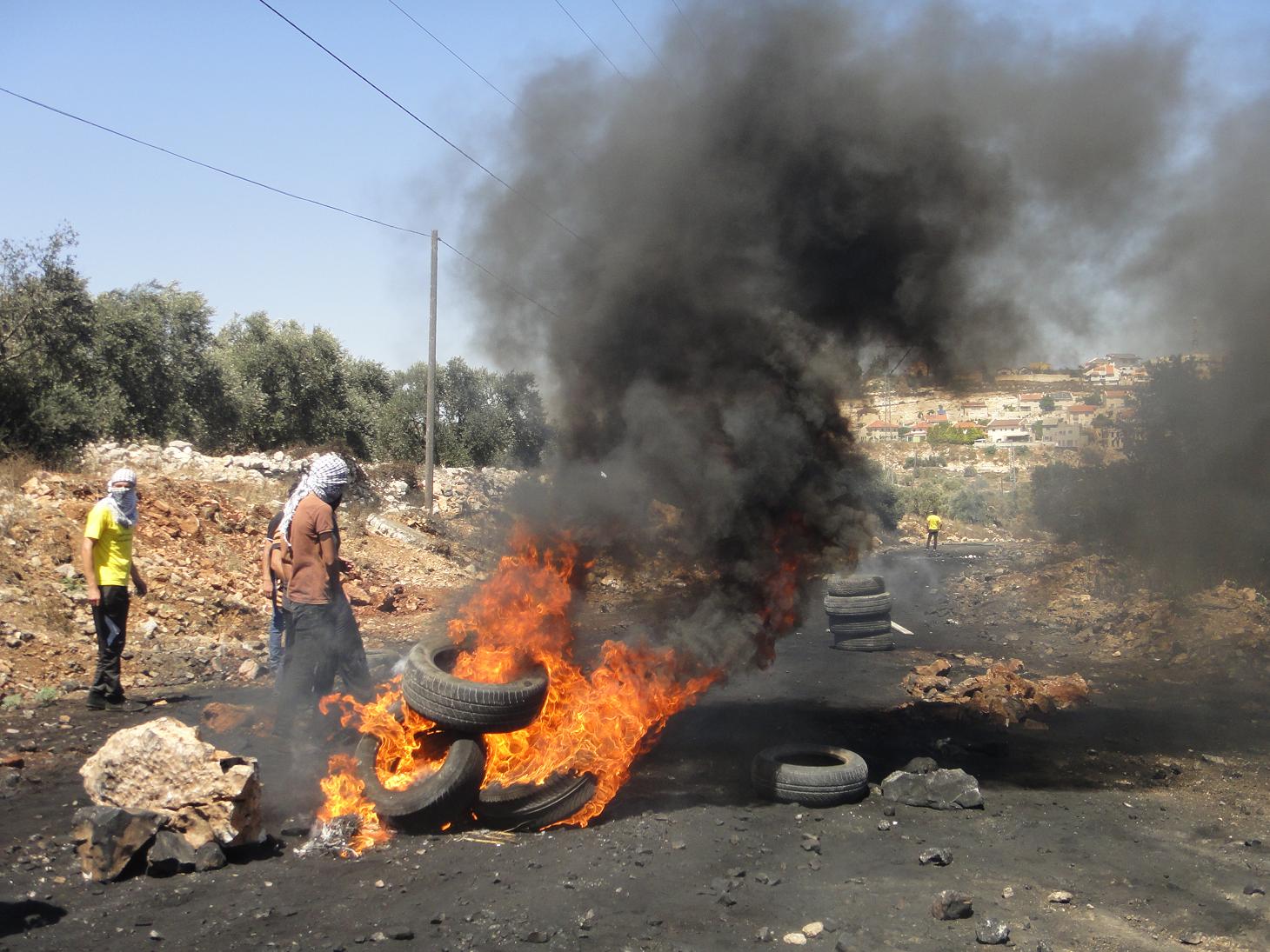Category: Reports
-
Prominent activist Nariman Tamimi under partial house arrest during weekly Nabi Saleh’s protest
7th July 2013 | International Solidarity Movement, Ramallah Team | Nabi Saleh, Occupied Palestine The weekly protest in the village of Nabi Saleh was, as usual, met with extreme violence by Israeli forces. Tear gas canisters, rubbers coated steel bullets and skunk water were shot at unarmed protesters. After midday prayers, over fifty Palestinians together…
-
Two years of demonstrations in Kafr Qaddum: “Our struggle will continue until we fulfill our rights”
5th July 2013 | International Solidarity Movement, Nablus Team | Kafr Qaddum, Occupied Palestine On the 4th of July 2013, the village of Kafr Qaddum defiantly celebrated two years of Friday demonstrations, which began in July 2011. The celebration, which included speeches and performances by village youth, was followed the next day by a further…
-
Settlers lead the Israeli army into a night attack in Jinba: beating children aged 4 to 16
5th July 2013 | International Solidarity Movement, Khalil Team | Jinba, Occupied Palestine On Wednesday night, the Israeli army carried out a lengthy and violent invasion of the village of Jinba, in Masafer Yatta, south of the West Bank. The army was reported to have been led by two Israeli settlers from the illegal outpost…

